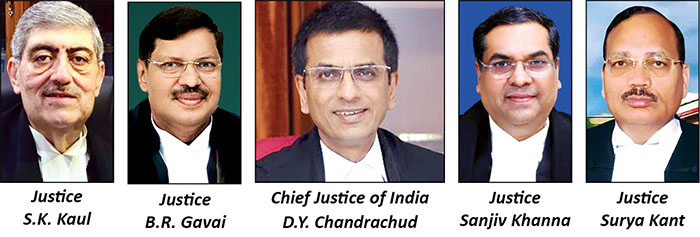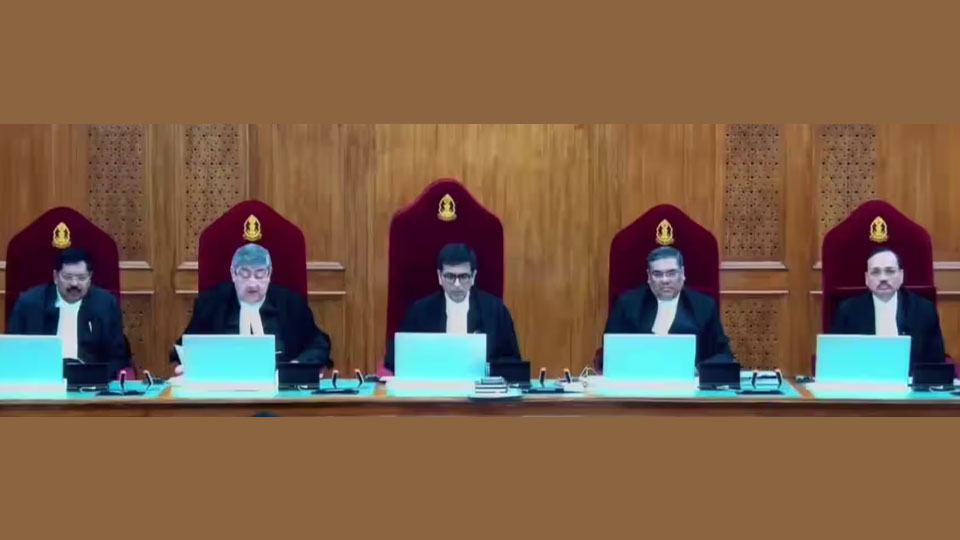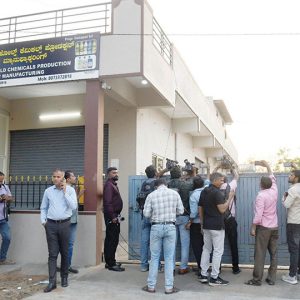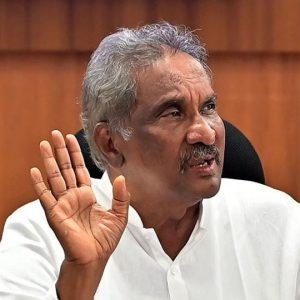Supreme Court orders Election Commission to hold election in Jammu and Kashmir by September 2024
New Delhi: The Supreme Court (SC) this morning upheld the Presidential Proclamation of 2019 abrogating Article 370, which granted special status to Jammu and Kashmir. In a unanimous verdict, the Five-Judge Constitution Bench of the Supreme Court said Article 370 was a temporary feature and the President had the power to abrogate it as there was no mala fide.
The Top Court also directed the Central Government (Election Commission) to hold Assembly election in J&K by September 30, 2024.
The Bench, led by the Chief Justice of India, D.Y. Chandrachud, said the Jammu and Kashmir Constitution ceased to exist after the Presidential Proclamation in August 2019. The Bench, also comprising Justices S.K. Kaul, Sanjiv Khanna, B.R. Gavai and Surya Kant had reserved its verdict in the matter on Sept. 5.
Three separate judgements
The Bench gave three separate judgements — one authored by Chief Justice Chandrachud on behalf of himself, Justice Gavai and Justice Surya Kant; another concurring judgement by Justice Sanjay Kishan Kaul and a third judgement concurring with the other two by Justice Sanjiv Khanna.
Jammu and Kashmir did not retain sovereignty when it joined India and its Constituent Assembly ceased to exist the moment it merged with India, the Supreme Court said, referring to why special status was not needed.
“The J&K Constituent Assembly was not intended to be a permanent body. It was formed only to frame the Constitution. The recommendation of the Constituent Assembly was not binding on the President,” the Supreme Court said.

Court explains why special status continued
The Supreme Court, however, explained why the State continued to enjoy special status even after its merger with India, despite the State not having ‘internal sovereignty.’
“When the Constituent Assembly ceased to exist, the special condition for which Article 370 was introduced also ceased to exist. But the situation in the State remained, and thus the Article continued,” the Supreme Court said.
Article 370 gave Jammu and Kashmir its own Constitution and decision-making rights for all matters barring defence, communications and foreign affairs. Its removal ended special status to the State.
Carving out Ladakh validated: The Apex Judiciary also upheld the Centre’s decision to carve out Ladakh as a separate Union Territory from Jammu and Kashmir.
The SC verdict came on a batch of petitions that challenged the Central Government’s 2019 move to abrogate Article 370, thereby ending the special status conferred to the erstwhile State.
The Centre had also passed in Parliament The Jammu and Kashmir Reorganisation Act, 2019, bifurcating the then State into two Union Territories — Jammu & Kashmir and Ladakh.
Contained within Article 370 was Article 35A, which allowed the erstwhile State to define who it acknowledged as permanent residents and gave special rights, such as government jobs and owning property.
The Supreme Court said it did not find it necessary to see whether the reorganisation of Jammu and Kashmir into a Union Territory was valid since it was a temporary arrangement until the election and restoration of Statehood.








Recent Comments